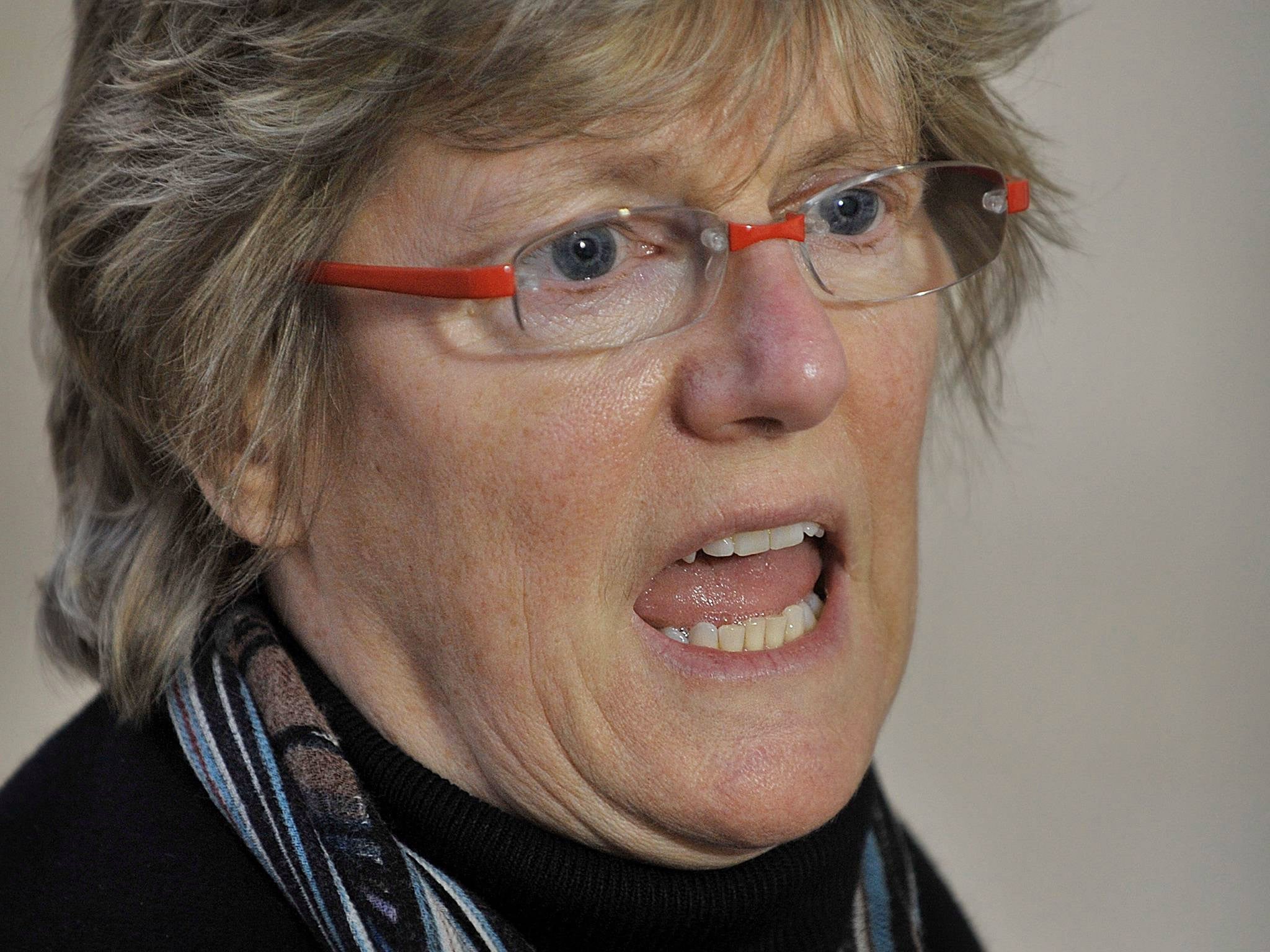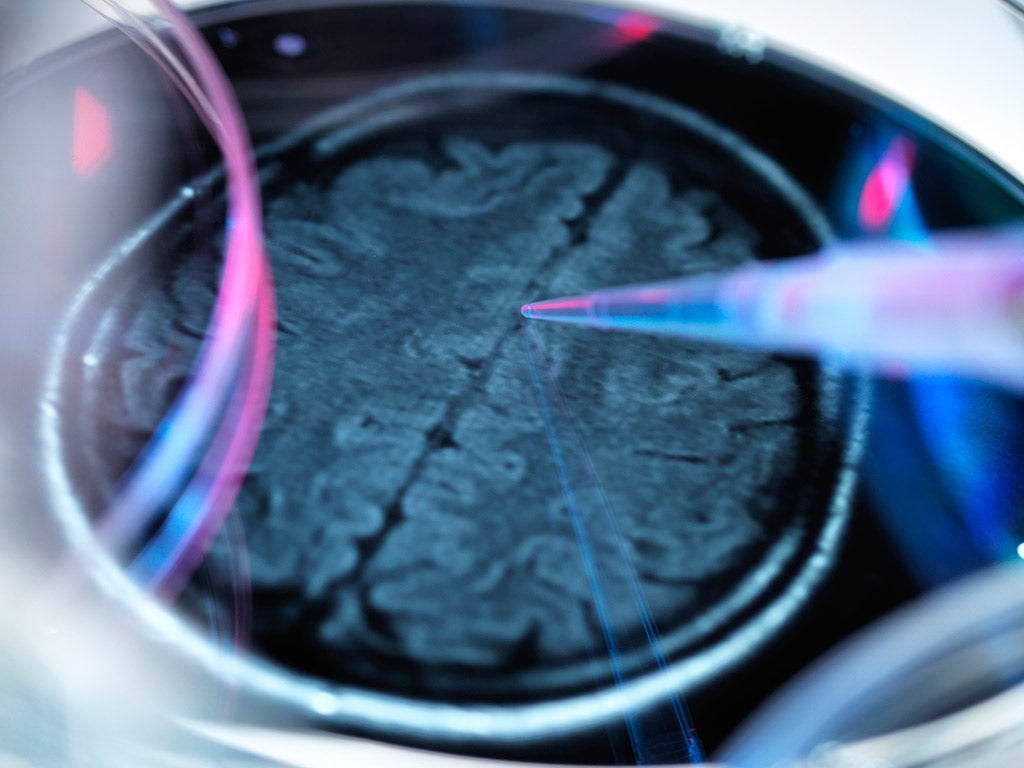Government’s top doctor 'tried to discredit claims Alzheimer's might be infectious'
Dame Sally Davies approached the editor of a rival scientific journal to discredit the study in the eyes of the public, the Independent understands

Your support helps us to tell the story
From reproductive rights to climate change to Big Tech, The Independent is on the ground when the story is developing. Whether it's investigating the financials of Elon Musk's pro-Trump PAC or producing our latest documentary, 'The A Word', which shines a light on the American women fighting for reproductive rights, we know how important it is to parse out the facts from the messaging.
At such a critical moment in US history, we need reporters on the ground. Your donation allows us to keep sending journalists to speak to both sides of the story.
The Independent is trusted by Americans across the entire political spectrum. And unlike many other quality news outlets, we choose not to lock Americans out of our reporting and analysis with paywalls. We believe quality journalism should be available to everyone, paid for by those who can afford it.
Your support makes all the difference.A senior government adviser attempted to undermine a controversial study suggesting that Alzheimer’s is a transmissible disease before it was published in the journal Nature.
Dame Sally Davies, the chief medical officer at the Department of Health, approached the editor of a rival scientific journal, The Lancet, to discredit the study in the eyes of the public, The Independent understands.
Dame Sally told Richard Horton, the editor of The Lancet, that the study on Alzheimer’s was likely to result in a public scare and asked him for advice on how to handle the media reaction before it came out in Nature.
The study, published earlier this month, suggested that the “seeds” of Alzheimer’s disease may be transmitted from one person to another during certain medical procedures.
It was based on the brain autopsies of eight people aged between 36 and 51 who had died of Creutzfeldt-Jakob disease (CJD) after receiving injections of human growth hormone derived from the pituitary glands of dead people.
Seven of the eight has signs of a brain protein linked with Alzheimer’s, although they had no genetic predisposition to the disease and were too young to have developed it naturally – strongly suggesting transmission via contaminated hormone injections.
Dame Sally, a haematologist by training, contacted Dr Horton on the weekend before Nature intended to publish the study having received confidential information under the strict embargo terms of the journal, which prohibit any approaches to third parties unless it is “solely for soliciting informed comment”.

In an unsigned editorial in The Lancet this week, Dr Horton writes that an unnamed government source informed him on the study’s impending publication and urged him to consider what he might do to reduce further the risk of a scare.
Dr Horton then wrote to the Science Media Centre in London, which was coordinating expert reaction to the study with the help of University College London and the Medical Research Council, which funded the work by Professor John Collinge, a world authority on transmissible brain diseases.
Although The Lancet’s source is not identified, The Independent understands that it was Dame Sally, who knows Dr Horton personally and has shared several conference platforms with The Lancet’s outspoken editor.
A spokesman for the Department of Health said last night that the identity of The Lancet’s source is the subject of a freedom of information request and cannot therefore comment.
It is highly unusual for a government science adviser to approach a medical journal for help in media management relating to a controversial study published in a rival journal with its own distinguished track-record of handling contentious research findings.
A spokeswoman for Nature declined to comment. Sir Philip Campbell, its editor, was unavailable for comment.
In The Lancet’s editorial entitled “Alzheimergate? When miscommunication met sensationalism”, Dr Horton attempts to belittle the significance of the study’s findings and the resulting newspaper coverage, including that of The Independent whose headline “Alzheimer’s may be a transmissible infection” is one of several he singles out for criticism.
“But the study does not provide evidence of human transmission, as the authors acknowledge themselves in their final paragraph – ‘there is no suggestion that Alzheimer’s disease is a contagious disease and no supportive evidence from epidemiological studies that Alzheimer’s disease is transmissible’,” Dr Horton writes.
The phrase mirrors the comment by Dame Sally issued hours before the Nature study was published: “As this research itself states, there is no evidence that Alzheimer's disease can be transmitted in humans, nor is there any evidence that Alzheimer's disease can be transmitted through any medical procedure.”
The Independent’s coverage of the study made it clear that Alzheimer’s is not contagious and cannot be “caught” by living with or caring for a patient. However we stated that the findings suggest that the “seeds” of the disease may be transmissible under certain circumstances, such as the injection of human growth hormone made from pituitary glands, which was stopped in 1985.
We also quoted Professor Collinge, who said during a press conference prior to the study’s publication: “Although it is not cause for alarm that it is in any way contagious, it doesn’t mean we shouldn’t think about whether there might be accidental routes by which this disease might be transmitted by certain medical procedures.”
Dr Horton also criticises the headline of the Nature study, which suggested it was “evidence of human transmission” of one of the brain proteins found in Alzheimer’s patients, and the use by some media of the phrase “paradigm shift”, which was cited several times by Professor Collinge in various press conferences.
“But the findings, although certainly interesting, were a long way from a true ‘paradigm shift’. The use of this phrase likely heightened the interest and attention of journalists – and headline writers,” Dr Horton wrote.
Dr Horton was unavailable to comment.
Join our commenting forum
Join thought-provoking conversations, follow other Independent readers and see their replies
Comments